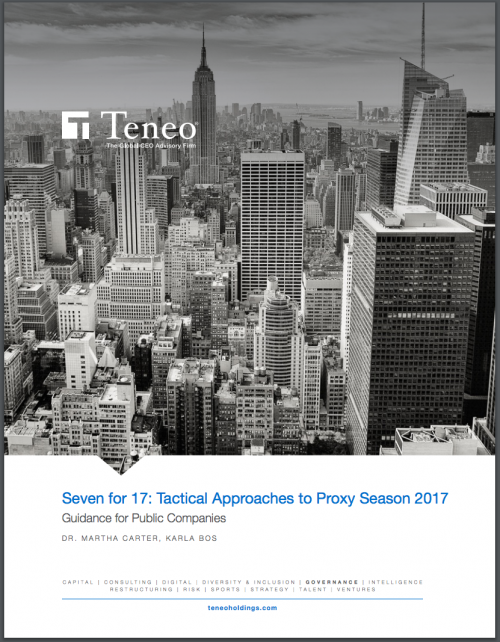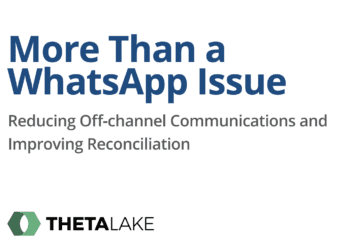As most public companies approach the start of Proxy Season 2017, investor voting policies and the hottest trends in corporate governance are important issues companies will face at their annual meetings. Equally important are the practical considerations for how to navigate the proxy advisors, engage with investors, react to activists, and position boards for successful voting outcomes.
The landscape has changed in 2017. Most of the fundamental views in governance are out on the table. Say on Pay as a ballot item is over five years old, director independence has been around over a decade, and Sarbanes-Oxley drove significant changes in audit committees nearly fifteen years ago.
What has evolved recently is the way in which companies interact with the governance community. A thoughtful approach and clear messaging to the various constituents that will influence proxy season outcomes are as important as the issues underlying the narrative.
Here are “seven for seventeen” – seven helpful hints for the 2017 proxy season, along with do’s and don’ts for a successful season.
Click here to read the report
Teneo Governance helps CEOs and boards navigate the constantly evolving global business environment by addressing a wide range of governance, compliance and proxy voting issues. Our team understands the companies’ perspectives, the boards’ needs, and investors’ viewpoints and policies. Teneo Governance is one of the 12 divisions of Teneo, a global advisory firm that works exclusively with the CEOs and leaders of the world’s largest and most complex companies, providing strategic counsel across their full panoply of key objectives and issues. Our teams integrate the disciplines of strategic communications, investment banking, management consulting, business intelligence, talent development, digital analytics, corporate governance, government affairs and corporate restructuring to solve for the most complex business and reputational challenges and opportunities. The Firm was founded in June 2011 by Declan Kelly, Doug Band and Paul Keary and now has more than 550 employees located in 14 offices around the world.











